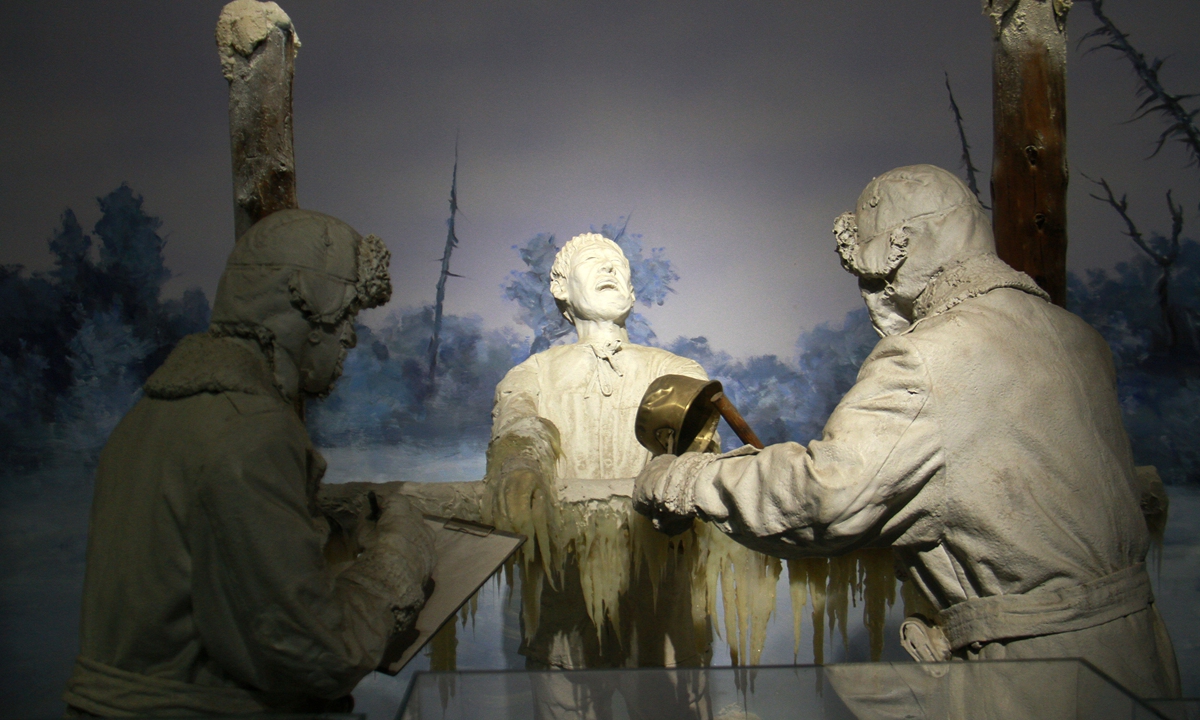
A group of statues in Harbin, Northeast China's Heilongjiang showing the brutal crime conducted by the Unit 731, an infamous Japanese germ warfare unit during its invasion in China Photo: VCG
With the release of the movie
Oppenheimer in Japan igniting heated discussion, terms including "Unit 731" and "Nanjing [Massacre]" have risen to the top of the search bar on American social media platforms in recent days, with many appalled by Japanese atrocities in China during World War II.
The film, which dominated the 96th Academy Awards with seven Oscar wins, depicts the life of the man known as the father of the atomic bomb, and it was officially released in Japan on March 29. In just three days, Oppenheimer grossed 379.3 million Japanese yen (about $2.5 million), making it the highest-grossing foreign film in Japan so far in 2024.
As Japan is the only country in history to have been attacked with nuclear weapons, the movie was met with complex feelings from Japanese viewers. Some said that the film "only focuses on the side that dropped the atomic bomb, while ignoring the side that was bombed," with some even accusing Oppenheimer of "launching a massacre against Japan."
Such criticism soon drew a backlash from American viewers, who argued that it is an internationally recognized fact that the dropping of atomic bombs on Japan destroyed the ability of Japanese militarists to continue waging war, thus hastening the end of World War II and the global peace process.
As the spat expanded, more and more American netizens realized that the most crucial reason for the US to drop the atomic bombs on Japan was Japan's external aggression, during which the Japanese army committed unimaginable war crimes.
The controversy then prompted US netizens to search for historical facts. Soon, "Unit 731" became a trending topic on TikTok, as people began to forward videos introducing the experiments carried out by Unit 731 in China, and how Japan used prisoners from China and other countries to test the effects of the biological and chemical weapons developed by the Japanese Army.
Many netizens expressed their astonishment and fury upon learning these facts. Some videos of "dark secrets of Unit 731" have attracted more than 2 million views on TikTok.
One comment said that Japan "does not have the right to ask for an apology, but owes an apology to the victims of the war."
Terms including "Pearl Harbor" and "Nanjing" also made it to the top of the search list following the "Unit 731" revelation, as many American netizens who were previously unaware learned about the Nanjing Massacre, in which more than 300,000 civilians were killed by Japanese troops.
However, the US reached a secret deal after the war with the organizer and direct leader of Unit 731, Shiro Ishii, who conducted biochemical experiments in China and caused the deaths of a large number of people. The deal to share the human data with the US allowed Ishii to escape justice, and also allowed the US to continue similar tests.
The debate comes ahead of the official visit to the US on Wednesday by Japanese Prime Minister Fumio Kishida.
In response to the controversy between the two "close allies," Chinese netizens have also called on Japan to face up to history and reflect on its war atrocities.




